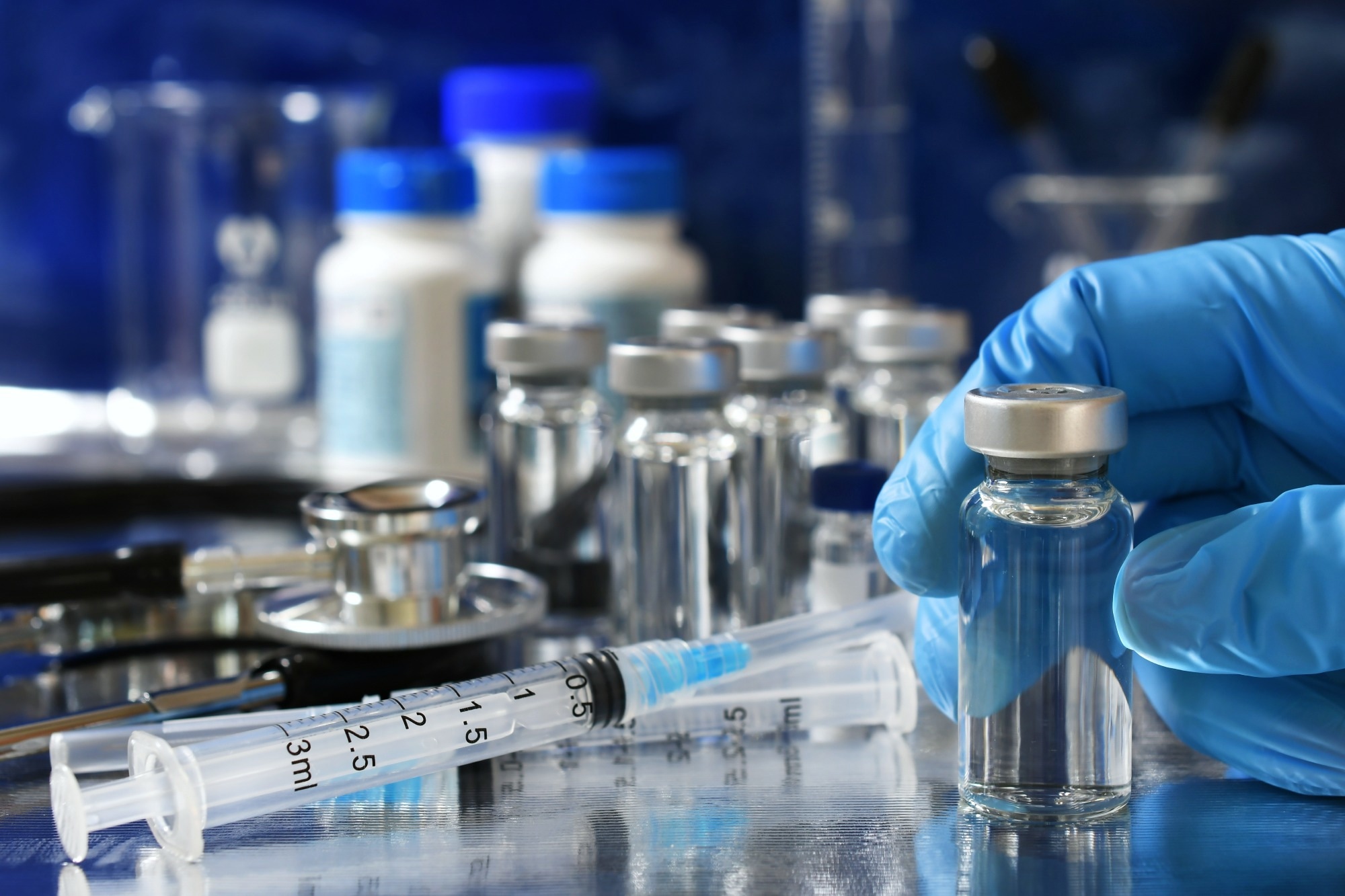These preventive measures were a two-dose mpox vaccination campaign using the JYNNEOS® vaccine and high-risk population awareness and behavioral changes.
To this end, they performed a risk-structured susceptible-exposed-infectious-asymptomatic-recovered-vaccinated” (SEIARV) modeling study.
 Study: Impact of vaccination and high-risk group awareness on the mpox epidemic in the United States, 2022–2023: a modelling study. Image Credit: MargJohnsonVA/Shutterstock.com
Study: Impact of vaccination and high-risk group awareness on the mpox epidemic in the United States, 2022–2023: a modelling study. Image Credit: MargJohnsonVA/Shutterstock.com
Background
The US witnessed a mpox epidemic in 2022–2023 that caused >30,000 cases and 32 deaths. Subsequently, the US Food and Drug Administration (FDA) increased the access to JYNNEOS® vaccine, especially for high-risk groups, in several jurisdictions.
As a result, by January 2023, its coverage among men having sex with men (MSM), gays, and bisexuals (GBMSM) in the US reached ~37% and 23% for the first and second doses, respectively.
According to the US Centers for Disease Control and Prevention (CDC) surveys, MSM adopted preventive behaviors, too.
They reduced their number of sexual partners and one-time sexual encounters after learning about the outbreak, i.e., they became self-aware to prevent onward mpox transmission.
However, there is a lack of data on how these two interventions prevented mpox transmission. A fair estimate of the combined effectiveness of these two interventions in the US could inform strategies to prepare for subsequent mpox epidemics. Moreover, this data might be relevant to other reemerging infectious diseases.
About the study
In the present study, researchers first constructed a deterministic SEIARV model that separated high-risk and low-risk sub-populations in the US into 11 compartments by vaccination status and the natural history of mpox infection.
Notably, the high-risk group comprised MSM ≥13 who were at risk of acquiring mpox through risky sexual behaviors, such as having multiple sex partners.
Published empirical studies helped estimate model parameters for the natural history of mpox infection and large-scale case-control studies for the real-world effectiveness of the JYNNEOS® vaccine.
The first day of model simulation was 10 May 2022, and the US-CDC reports helped derive daily mpox cases in the US.
Some key model assumptions were that pre-symptomatic mpox transmission occurred up to four days before the onset of symptoms and decreased subsequently, symptomatic patients were more infectious than asymptomatic ones, and there was a 14-day induction period after the first and second doses of vaccination.
Next, the researchers applied the least square method to estimate the effective population size of the high-risk group, the transmission coefficients, and the number of people in the compartments that were or would have been infectious for mpox during the actual US mpox epidemic. The model with the smallest mean square error (MSE) was the best-fit model.
There was a gap in data regarding the precise proportion of high-risk MSM among the vaccine (JYNNEOS®) recipients in the US.
To address this, the researchers distributed the daily vaccine administration rate for the first and second doses in a 2:1 ratio between the high-low-risk groups, assuming all vaccines were for pre-exposure prophylaxis.
Another critical assumption for modeling was that 50% of the high-risk group reduced their previous risky sexual behaviors by 50% since 22 May 2022.
The primary study outcome was the prevention percentage of total reported cases and cumulative mpox infections (symptomatic+asymptomatic) compared to the counterfactual scenario (no interventions).
The team also performed one- and three-way sensitivity analyses by varying study parameters, e.g., the proportion of mpox cases and asymptomatic cases reported in the US, JYNNEOS® vaccine effectiveness, and a combination of these to determine their impact on the prevention percentages.
Results
Per the best model simulation, the high- and low-risk groups' effective proportion of the population was 4% (n=114,931) and 96% (n=2,758,352) of the total at-risk population, respectively.
Daily reported mpox cases peaked on 6 August 2022, with reported case numbers reaching 505; however, they declined substantially by the year's end.
The number of all types of cases estimated by the model from 22 May-22 December 2022 was 29,559 (±5%), similar to the actual reported mpox case numbers to CDC (29,918), and of these, 71.8% were from the high-risk group.
Alone, two-dose vaccination administration and high-risk group awareness could prevent 21.2% and 15.4% of reported mpox cases or infections (symptomatic+ asymptomatic) by the end of 2022, compared to the counterfactual scenario.
However, together, they prevented 64% of reported cases and infections, implying they worked remarkably well and almost successfully controlled the mpox epidemic in the US. Sensitivity analysis confirmed these findings, too.
Conclusions
The JYNNEOS® mpox vaccine was highly effective at the individual and population level, i.e., it prevented mpox infections and reduced disease symptoms, severity, and even its transmission/spread.
In combination with changes in risky sexual behavior by high-risk groups, it became even more effective in preventing mpox spread.
This modeling study suggested that mpox vaccination and high-risk group awareness in the US had a synergistic (preventive) effect against mpox.